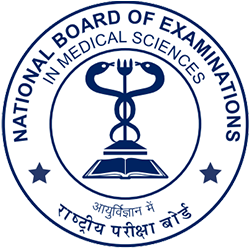"CELL HEALTH"
–Medical Tests Packages
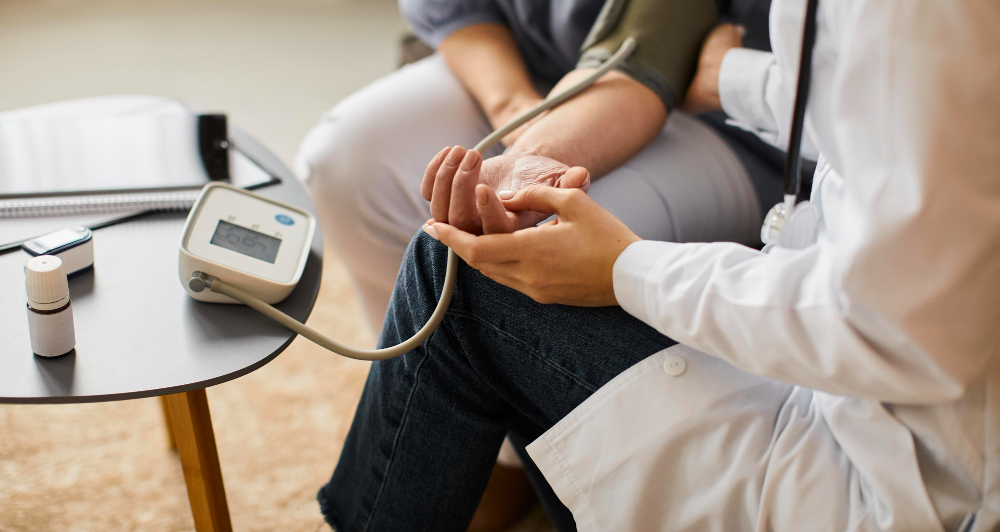
"CELL HEALTH"
– Medical Tests Package

About the Package
Cell Health Check Package – The list of tests included as part of the screening-package has been carefully selected by a multidisciplinary team of clinicians’ and also incorporated additional imaging tests that will be performed only if deemed necessary at no extra cost for individuals who are at risk or show abnormal biomarkers indicating the evaluation at much deeper levels using high resolution imaging technology digitally.
Who are Eligible
Must be 18+ years of age.
About the Package
Cell Health Check Package – The list of tests included as part of the screening-package has been carefully selected by a multidisciplinary team of clinicians’ and also incorporated additional imaging tests that will be performed only if deemed necessary at no extra cost for individuals who are at risk or show abnormal biomarkers indicating the evaluation at much deeper levels using high resolution imaging technology digitally.
Who are Eligible
Must be 18+ years of age.
- ✓ Echocardiography (ECG) –
A non-invasive study that detects heart rhythm and functional
abnormalities at rest by measuring the electrical activity of the heart and help in diagnosing
medical conditions such as atrial fibrillation, tachycardia, myocardial ischemia (blocks in the
coronary arteries) and electrolyte disturbances causing heart failure. - ✓ Echocardiogram (Echo) –
It is an ultrasound-based imaging of the heart that evaluates the structural integrity and abnormalities heart chambers and major blood vessels and the blood volume that flows in and out of the heart. Medical conditions identified include – Early detection of myocardial ischemia, heart failure, cardiomyopathy, heart valve diseases such as stenosis and regurgitation;
- ✓ Cardiac Stress Test –
A non-invasive study that detects heart rhythm and functional abnormalities under stressful conditions by measuring the electrical activity of the heart. The test helps to diagnose coronary artery disease and assess how well a patient is responding to treatment after experiencing a heart attack.
- ✓ Lipid Levels Profiling –
Lipid profiling includes a list of tests that measure the quantities of lipids circulating in the blood such as cholesterol, triglycerides, and the proteins that are transporting them (Lipoproteins). Their quantities and relative abundance influence the health of blood vessels and organs that depend on their optimal levels. The major medical conditions that are diagnosed and assessed for risk based on the profiling include – cardiovascular diseases, inflammatory conditions and stroke. Furthermore, several autoimmune diseases, including systemic lupus erythematosus, psoriasis, type-1 diabetes, and rheumatoid arthritis, are correlated highly with irregularities in lipid profile(dyslipidaemia).
- ✓ Iron Levels Profiling –
Iron levels profiling evaluates the iron levels and their reserves in the body. The profiling helps to diagnose Iron overload and Anaemia due to genetic or acquired conditions including malabsorption.
- ✓ C-Reactive Protein –
Highly sensitive C-Reactive Protein (hs-CRP) levels are elevated during inflammation indicating the presence of underlying medical conditions such as autoimmune conditions, such as Rheumatoid arthritis (RA), Systemic lupus, Crohn’s disease, Ulcerative colitis and Pericarditis, which is inflammation of the lining of the heart.
- ✓ Erythrocyte Sedimentation Rate (ESR) –
ESR blood tests is a generalised indicator of inflammation and the abnormal levels indicate infections, autoimmune conditions, cancers, congestive heart failure, anaemia and kidney diseases
- ✓ HBsAg, HCV Tests –
The tests evaluate the presence or absence of the infective virus in the blood that would have been acquired due to transfusion or exchange of body fluids
- ✓ RA Factor
- ✓Bone Mineral Density (BMD)*
- ✓ HbA1C, FBS, PBG –
These tests measure the amount of sugar in the blood at various time points and allows the diagnosis of medical conditions such as type-2 diabetes, type-1 diabetes, endocrine disorders, inflammation and cancers of the pancreas; also helps to assess the risk towards developing hypertension and diabetes associated complications namely retinopathy, nephropathy, neuropathy, cardiovascular diseases.
- ✓ ALP, AST, ALT, BR & GGT –
The list of tests under liver profiling measures the levels of enzymes, proteins and metabolites produced by liver physiologically. Any abnormalities in their levels indicate inflammation, infection, fibrosis, cancers of the liver; and damage to the bile ducts and bone diseases
- ✓ Alb, G, Cr, BUN, CUE, UA, & Electrolytes –
Kidney profiling is useful in the diagnosis of early chronic kidney disease (CKD) and management of early diabetes to avoid complications. Also, abnormal values indicate a risk of developing coronary, cerebral, and peripheral atherosclerosis (blocks in the arteries due to fatty plaque deposits).
- ✓ Faecal Occult Blood Test (FOB), Stool Test *, Lactate Dehydrogenase (LDH) –
Abnormal stool tests indicate fibrosis of the liver, infections, inflammation, malabsorption, enzyme insufficiencies such as PEI, and even cancers of the gastrointestinal system
- ✓Spirometry, LVT & X-Ray Imaging (Chest) –
The list of tests under lung health profiling help to diagnose chronic lung diseases, such as COPD, asthma, or pulmonary fibrosis due to inflammation or infections.
- ✓ EEG*
- ✓ FSH, LH TSH, T3, T4, Vit-B12, Vit-D, Folic Acid –
The list of tests under hormone and vitamin profiling evaluates the imbalances and deficiencies of the hormones and vitamins respectively and enables the consulting doctor to treat you with suitable medication, replacement, and supplementation therapies
- ✓General Eye Check & Sight Check, Slit Lamp Exam & Fundus Photography –
The eye health profiling evaluates both your vision and eye health and helps the consulting ophthalmologist to evaluate medical conditions such as retinopathy, cataract, myopia, hyperopia, astigmatism, presbyopia, strabismus, and amblyopia. It looks for signs of serious eye disorders that may not have symptoms, such as glaucoma.
- ✓Cancer Antigen(CA-125), Prostate Specific (PSA), Cervical Smear(PAP) –
high levels of CA-125 are often found in people who have ovarian cancer; abnormal levels of PSA along with pelvic ultrasonography and digital rectal exam help to diagnose prostate cancer.
- ✓CBP, Absolute Eosinophil Count, Blood Grouping, Rh Typing & Peripheral Smear–
The test measures multiple components of your blood to help identify bleeding disorders, infections, inflammation, anemia, leukaemia, and lymphoma
- ✓Skin Health Examination –
A thorough examination of the skin, nails, and skin is performed to evaluate a wide variety of medical conditions such as infections, allergies, autoimmune conditions, and even cancers
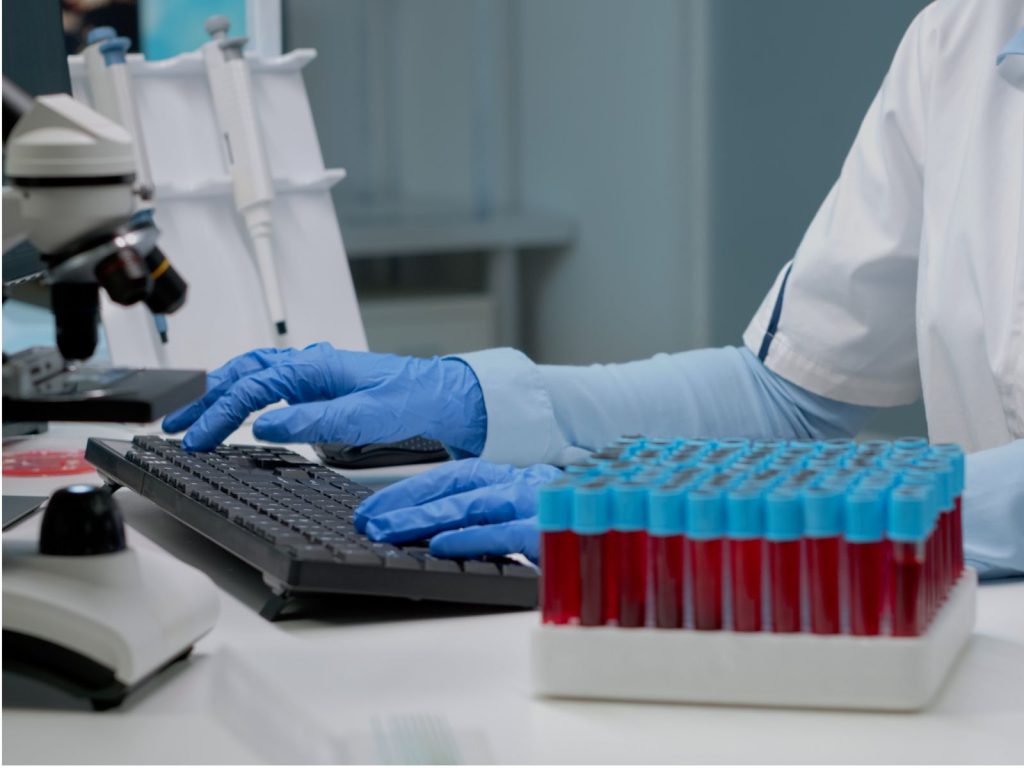
Tests -
- ✓ Echocardiography (ECG) –
A non-invasive study that detects heart rhythm and functional
abnormalities at rest by measuring the electrical activity of the heart and help in diagnosing
medical conditions such as atrial fibrillation, tachycardia, myocardial ischemia (blocks in the
coronary arteries) and electrolyte disturbances causing heart failure. - ✓ Echocardiogram (Echo) –
It is an ultrasound-based imaging of the heart that evaluates the structural integrity and abnormalities heart chambers and major blood vessels and the blood volume that flows in and out of the heart. Medical conditions identified include – Early detection of myocardial ischemia, heart failure, cardiomyopathy, heart valve diseases such as stenosis and regurgitation;
- ✓ Cardiac Stress Test –
A non-invasive study that detects heart rhythm and functional abnormalities under stressful conditions by measuring the electrical activity of the heart. The test helps to diagnose coronary artery disease and assess how well a patient is responding to treatment after experiencing a heart attack.
- ✓ Lipid Levels Profiling –
Lipid profiling includes a list of tests that measure the quantities of lipids circulating in the blood such as cholesterol, triglycerides, and the proteins that are transporting them (Lipoproteins). Their quantities and relative abundance influence the health of blood vessels and organs that depend on their optimal levels. The major medical conditions that are diagnosed and assessed for risk based on the profiling include – cardiovascular diseases, inflammatory conditions and stroke. Furthermore, several autoimmune diseases, including systemic lupus erythematosus, psoriasis, type-1 diabetes, and rheumatoid arthritis, are correlated highly with irregularities in lipid profile(dyslipidaemia).
- ✓ Iron Levels Profiling –
Iron levels profiling evaluates the iron levels and their reserves in the body. The profiling helps to diagnose Iron overload and Anaemia due to genetic or acquired conditions including malabsorption.
- ✓ C-Reactive Protein –
Highly sensitive C-Reactive Protein (hs-CRP) levels are elevated during inflammation indicating the presence of underlying medical conditions such as autoimmune conditions, such as Rheumatoid arthritis (RA), Systemic lupus, Crohn’s disease, Ulcerative colitis and Pericarditis, which is inflammation of the lining of the heart.
- ✓ Erythrocyte Sedimentation Rate (ESR) –
ESR blood tests is a generalised indicator of inflammation and the abnormal levels indicate infections, autoimmune conditions, cancers, congestive heart failure, anaemia and kidney diseases
- ✓ HBsAg, HCV Tests –
The tests evaluate the presence or absence of the infective virus in the blood that would have been acquired due to transfusion or exchange of body fluids
- ✓ RA Factor
- ✓Bone Mineral Density (BMD)*
- ✓ HbA1C, FBS, PBG –
These tests measure the amount of sugar in the blood at various time points and allows the diagnosis of medical conditions such as type-2 diabetes, type-1 diabetes, endocrine disorders, inflammation and cancers of the pancreas; also helps to assess the risk towards developing hypertension and diabetes associated complications namely retinopathy, nephropathy, neuropathy, cardiovascular diseases.
- ✓ ALP, AST, ALT, BR & GGT –
The list of tests under liver profiling measures the levels of enzymes, proteins and metabolites produced by liver physiologically. Any abnormalities in their levels indicate inflammation, infection, fibrosis, cancers of the liver; and damage to the bile ducts and bone diseases
- ✓ Alb, G, Cr, BUN, CUE, UA, & Electrolytes –
Kidney profiling is useful in the diagnosis of early chronic kidney disease (CKD) and management of early diabetes to avoid complications. Also, abnormal values indicate a risk of developing coronary, cerebral, and peripheral atherosclerosis (blocks in the arteries due to fatty plaque deposits).
- ✓ Faecal Occult Blood Test (FOB), Stool Test *, Lactate Dehydrogenase (LDH) –
Abnormal stool tests indicate fibrosis of the liver, infections, inflammation, malabsorption, enzyme insufficiencies such as PEI, and even cancers of the gastrointestinal system
- ✓Spirometry, LVT & X-Ray Imaging (Chest) –
The list of tests under lung health profiling help to diagnose chronic lung diseases, such as COPD, asthma, or pulmonary fibrosis due to inflammation or infections.
- ✓ FSH, LH TSH, T3, T4, Vit-B12, Vit-D, Folic Acid –
The list of tests under hormone and vitamin profiling evaluates the imbalances and deficiencies of the hormones and vitamins respectively and enables the consulting doctor to treat you with suitable medication, replacement, and supplementation therapies
- ✓General Eye Check & Sight Check, Slit Lamp Exam & Fundus Photography –
The eye health profiling evaluates both your vision and eye health and helps the consulting ophthalmologist to evaluate medical conditions such as retinopathy, cataract, myopia, hyperopia, astigmatism, presbyopia, strabismus, and amblyopia. It looks for signs of serious eye disorders that may not have symptoms, such as glaucoma.
- ✓Cancer Antigen(CA-125), Prostate Specific (PSA), Cervical Smear(PAP) –
high levels of CA-125 are often found in people who have ovarian cancer; abnormal levels of PSA along with pelvic ultrasonography and digital rectal exam help to diagnose prostate cancer.
- ✓CBP, Absolute Eosinophil Count, Blood Grouping, Rh Typing & Peripheral Smear–
The test measures multiple components of your blood to help identify bleeding disorders, infections, inflammation, anemia, leukaemia, and lymphoma
- ✓Skin Health Examination –
A thorough examination of the skin, nails, and skin is performed to evaluate a wide variety of medical conditions such as infections, allergies, autoimmune conditions, and even cancers
Additional Benefits

All test reports for the family will be on a mobile app to view or to forward for second opinion anytime in future

Free Super specialist consultation for treatment of all parameters that are not within normal range(ESR)

Any test mentioned, if not used can be taken up within 12 months free of cost, with prescription.
Additional Imaging Tests
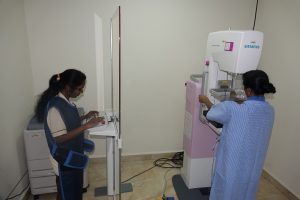
Mammography
An X-Ray scan of the breasts that provide information on the presence of lumps that may be either non-cancerous or cancerous tumours. The test is recommended for all women aged 40 and above to screen for breast cancer and other breast conditions. For women between 40 – 49 years of age, it should be done annually. For women aged 50 years and above, screening every 2 years is recommended.
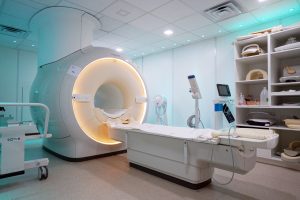
Whole Body MRI
A full-body MRI scan can highlight abnormalities caused by traumatic or repetitive injuries, aneurysms (blood vessel blockages), bone infections, and tumours in the bones and soft tissues; it can spot spinal tumours, pinched nerves, herniated discs, fractures and spinal cord compression. The test is not performed as part of comprehensive screening unless advised by the consultant.
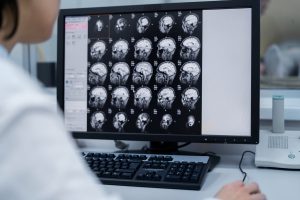
MR Elastography
Magnetic Resonance Imaging-based method detects the extent of hardening the liver has undergone due to fat build-up in the liver due to alcohol abuse (FLD), Fat build-up in the liver (NAFLD) due to obesity, hypertension, diabetes, and hyperlipidaemia, Chronic Infection and Inflammation of the Liver (Hepatitis)
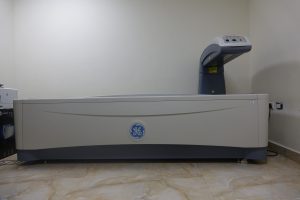
Bone Mineral Density (DEXA) Scan
Bone mineral density (BMD) is a test that uses x-ray to screen and detect bone strength and density to diagnose osteoporosis, a condition where the bones are weak and increase the risk of a fracture. It is highly recommended for the elderly, and for others with risk factors.

Carotid Ultrasonography
The test evaluates the presence of blocks or clots in the major vessel supplying blood to the heart. It is indicated for assessing the risk of developing stroke in individuals suffering from medical conditions such as Hypertension and Diabetes, blood clots in the carotid artery, blocks in the carotid artery

CT Coronary Angiography (CTA)
CT Angiography of the Heart is a non-invasive imaging test that provides in-depth details about medical conditions such as blocks in the heart arteries, the extent of calcium deposition in the arteries, the volume of blood entering and leaving the heart (ejection fraction) at every beat, unobstructed status of the stents placed previously
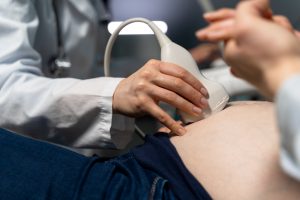
Ultrasonography – Abdomen & Pelvis
Ultrasonography of the abdomen can help determine the cause of stomach pain or bloating, kidney stones, liver disease, tumours, and abnormal bulging of major blood vessels. Pelvic ultrasound in women enables the identification of medical conditions affecting the uterus, including endometrial conditions, fibroid tumours (benign growths), masses, cysts, and other types of tumours. Pelvic ultrasound in men enables the identification of medical conditions affecting the seminal vesicles and the prostate gland such as obstructions, infections, and overgrowths such as tumours or cancers

High-Resolution CT of Chest
High-Resolution CT images of the chest area can help to evaluate the conditions affecting the lung or airways such as inflammation, obstructions, tumours, fibrosis or scarring due to infections, environmental triggers, and some genetic factors. Also, the test enables your doctor to plan rehabilitative treatment, especially after a COVID infection in order to improve lung capacity and function.

Renal Artery Ultrasonography
A renal ultrasound test helps to identify the diseases affecting the kidneys, ureters, and bladder such as cysts, tumours, abscesses, obstructions, fluid collection, and infections

Colonoscopy
Colonoscopy is typically used in elderly who are suffering from bleeding or chronic diarrhoea or pain due to cancers, inflammation, infections
FAQ
– The entire process is seamless and stress-free. Other than a blood draw, none of the tests are invasive or cause pain. People who are claustrophobic or can’t tolerate noise created by the machine may need counselling for undergoing MRI. Virinchi Hospitals is known to have the first and the best, state-of-the-art 3Tesla MRI machine in our twin cities.




